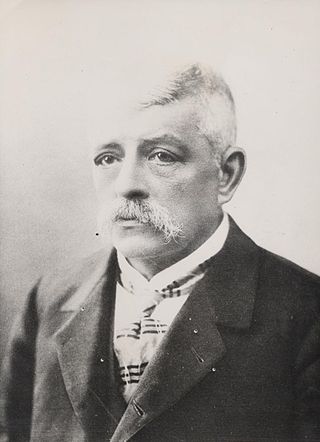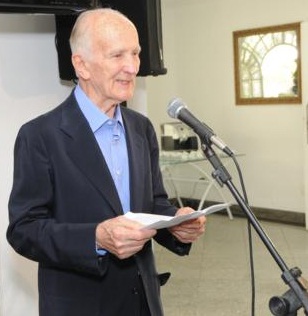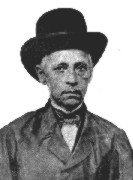Since 2008, Tagore Trajano has been collaborating with the organization and diffusion of the theme, alternating every two years the World Congress on Bioethics and Animal Rights, as well as the Brazilian Congress on Bioethics and Animal Rights' . [8]
Both events have over the years brought together hundreds of people, students and professors in different capitals to discuss important issues related to the legal status of living beings and their repercussion in today's post-humanist society. [9]
Articles
- MARINS, R. M. M. B.; MACHADO, C. A. A.; SILVA, T.T.A. . Por uma ética fraternal na Contemporaneidade: uma nova leitura das relações jurídicas. Revista Jurídico Luso Brasileira, v. 03, p. 605-627, 2017.
- GORDILHO, Heron J. S.; SILVA, T.T.A.; RAVAZZANO, F. . Animais e a Hermenêutica Constitucional Abolicionista. Revista Acadêmica - Faculdade de Direito do Recife, v. 88, p. 120-144, 2016.
- SILVA, T.T.A.; VIEIRA, L. C. A. . A Inconstitucionalidade da Vaquejada: uma análise da dignidade animal sobre a ADI nº 4983 e a lei estadual nº 15.299/13. Amazon's Research and Environmental Law, v. 04, p. 42-60, 2016.
- MENESES, R. C. C.; SILVA, T.T.A. . O Especismo Como Argumento Filosófico da Não Aceitação do Animal Como Sujeito de Direitos. Revista de Biodireito e Direito dos Animais, v. 02, p. 218-234, 2016.
- TRAJANO, Tagore. Direito Animal e Pós-Humanismo: Formação e Autonomia de um Saber Pós-Humanista. Revista Jurídica Luso Brasileira, v. 02, p. 2001-2066, 2015.
- BRAZ, L.C.F.S.; SILVA, T.T.A. . O Processo de Coisificação Animal Decorrente da Teoria Contratualista Racionalista e a Necessária Ascensão de Um Novo Paradigma. Revista Brasileira de Direito, v. 11, p. 44-52, 2015.
- OLIVEIRA, I. M.; SILVA, T. T. A. ou TRAJANO, Tagore; LIMA, K. J. M. . A imolação nas liturgias de matriz africana: reflexões sobre colisão entre liberdade religiosa e proteção dos direitos dos animais não-humanos. Revista do Programa de Pós-Graduação em Direito da Universidade Federal da Bahia, v. 25, p. 285-314, 2015.
- TRAJANO, Tagore. Princípios de proteção animal na Constituição de 1988. Revista de Direito Brasileira, v. 11, p. 62-105, 2015.
- SILVA, T. T. A. ou TRAJANO, Tagore . Brazilian Animal Law Overview: Balancing Human And Non-Human Interests. In: David Favre. (Org.). Journal of Animal Law. East Lansing: Michigan State University College of Law, 2010, v. 06, p. 81-104.
- GORDILHO, Heron José de Santana; SILVA, T. T. A. ou TRAJANO, Tagore . Animais em juízo: direito, personalidade jurídica e capacidade processual. Revista de Direito Ambiental, v. 65, p. 333-363, 2012.
- GORDILHO, Heron José de Santana; SILVA, T. T. A. ou TRAJANO, Tagore . Habeas Corpus para os grandes primatas. Revista do Instituto do Direito Brasileiro da Faculdade de Direito da Universidadede Lisboa - RIDB, v. 04, p. 2077-2114, 2012.
- SILVA, T. T. A. ou TRAJANO, Tagore; LANGERHORST, Victor Vendramini; BRAGA, Sérgio Waxman. . Fundamentos do direito animal constitucional. Revista Brasileira de Direito Animal, v. 10, p. 235-276, 2012.
- SILVA, T. T. A. ou TRAJANO, Tagore . Introdução aos direitos dos animais. Revista de Direito Ambiental, v. 62, p. 141-168, 2011.
- SILVA, T. T. A. ou TRAJANO, Tagore; GORDILHO, Heron José de Santana . Eficácia dos direitos fundamentais e justiça distributiva: o interesse público como problema jurídico nos tratamentos de saúde. Jurispoiesis (Rio de Janeiro), v. 14, p. 149-176, 2011.
- SILVA, T. T. A. ou TRAJANO, Tagore . Constitucionalização dos direitos dos animais. Revista da Faculdade de Direito (Faculdade Maurício de Nassau), v. 05, p. 217-236, 2010.
- SILVA, T. T. A. ou TRAJANO, Tagore . Antivivisseccionismo e direito animal: em direção a uma nova ética na pesquisa científica. Revista de Direito Ambiental, v. 53, p. 261-311, 2009.
- SILVA, T. T. A. ou TRAJANO, Tagore . Capacidade de ser parte Dos Animais Não-Humanos: Repensando os Institutos da Substituição e Representação Processual. Revista Brasileira de Direito Animal, v. 05, p. 267-296, 2009.
- SILVA, T. T. A. ou TRAJANO, Tagore . A Lei Arouca: ainda continuamos a realizar pesquisas com animais. Pensata Animal, v. 17, p. 01-06, 2008.
- SILVA, T. T. A. ou TRAJANO, Tagore . Direito animal e hermenêutica jurídica da mudança:a inserção da linguagem dos movimentos sociais em um novo significado jurídico. Revista Brasileira de Direito Animal, v. 04, p. 247-264, 2008.
- SILVA, T. T. A. ou TRAJANO, Tagore; SOUZA, A. S. . APROPRIAÇÃO DOS ESPAÇOS PÚBLICOS DURANTE O CARNAVAL DE SALVADOR (SSA), BAHIA, BRASIL Síntese das Desigualdades Sociais. Revista jurídica dos formandos em direito da UFBA, v. 11, p. 359-383, 2008.
- SILVA, T. T. A. ou TRAJANO, Tagore; NORONHA. Ceci Vilar . Formas de violência extralegal: linhamentos e execuções sumárias. Revista do Cepej, v. 08, p. 355-369, 2007.
- SILVA, T. T. A. ou TRAJANO, Tagore . Direito animal e os paradigmas de Thomas Kuhn: Reforma ou revolução científica na teoria do direito?. Revista Brasileira de Direito Animal, v. 03, p. 239-270, 2007.
- SILVA, T. T. A. ou TRAJANO, Tagore; SANTANA. Heron José; SANTANA. Luciano Rocha; VIDA. Samuel Santana . Habeas Corpus em favor da Chimpanzé Suíça. Revista Brasileira de Direito Ambiental, v. 04, p. 225-247, 2005.















